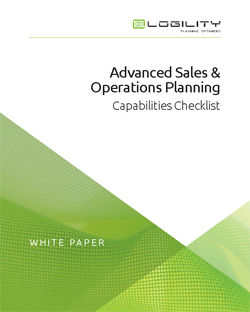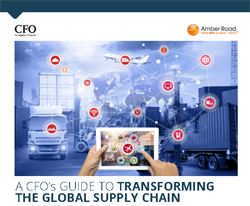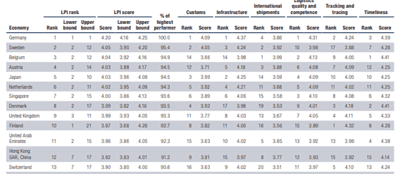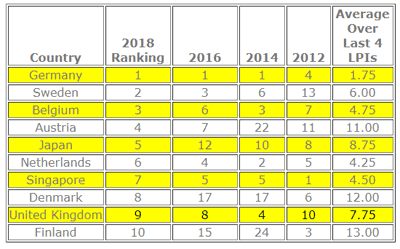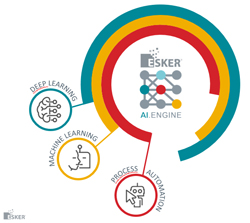 |
December 7, 2018 - Supply Chain Flagship Newsletter |
 |
|
 |
|
||||||||||||||||||||||||||||||||||||||||||||||||||||||||||||||||||||||||||||||||||||||||||||||||||||||||||||||||
In the end, using some standard statistical methods, every country included in the Index is given a score between 1 and 160 for each attribute, with that score ultimately translated to a number between 0 and 5 (to two decimal places), which are then averaged to produce a final score. How does the World Bank acquire such data? The results are obtained from an elaborate survey of freight forwarders and 3PLs worldwide, which seems like a reasonable approach to me. The surveying is quite sophisticated, with respondents rating logistics competence in their own countries and then also a limited number of other countries they know best. The survey is also conducted in two phases, with results from the first phase used to target respondents for the second phase to get enough data for the results to be significant for each country. So, below you will find a chart of the top 40 nations in the 2018 report, showing not only the ranking from 1 to 40 but also the component scores for each of the six attributes. |
|||||||||||||||||||||||||||||||||||||||||||||||||||||||||||||||||||||||||||||||||||||||||||||||||||||||||||||||||
Top 40 Countries for 2018 LPI with individual Attribute Scores
|
|||||||||||||||||||||||||||||||||||||||||||||||||||||||||||||||||||||||||||||||||||||||||||||||||||||||||||||||||
European countries as usual dominated the rankings, holding the top four spots, 8 of the top 10, and 13 of the top 20. China came in at number 26, up one spot from 27 in 2016. Mexico was number 51. Interestingly, for all the handwringing relative to US logistics infrastructure challenges, the US actually ranked number 7 in the world on that attribute, up from the 8th spot in 2018. But also as in the last report, the US would have been near the top ranking overall except for a relatively poor rating of number 23 on ease of international shipments. Top ranked Germany also rated as having the best logistics infrastructure, I'll note. Five countries have been in the top 10 overall for the last four reports, dating back to 2012: Germany, Netherlands, Belgium, United Kingdom, and Singapore. Sweden would be on that list too except for oddly falling to 15 in 2012, almost certainly a statistical aberration. |
|||||||||||||||||||||||||||||||||||||||||||||||||||||||||||||||||||||||||||||||||||||||||||||||||||||||||||||||||
|
The WTO continues to hinting that it may start rating the logistics capabilities of major cities around the globe before too long, the report says "The World Bank is thus increasingly involved in urban logistics projects in Brazil, China, Kenya, Morocco, and other countries."
Any reaction to the 2018 World Bank LPI ratings? What's seems right and not right, if anything, to you? Is the US place appropriately? Let us know your thoughts at the Feedback section below. |
|||||||||||||||||||||||||||||||||||||||||||||||||||||||||||||||||||||||||||||||||||||||||||||||||||||||||||||||||
|
|
|
YOUR FEEDBACK
We received a number of emails on our various coverage of the CSCMP Edge conference. A selection is below. More next week.
Feedback on CSCMP Edge 2018:
![]()
Since the company upgraded its security, SC Digest was getting trapped in "junk" mail folder.
I recently released them from the folder. SC Digest, and your columns, are anything but junk. Indeed, SC Digest is one of the few bulk emails that I enjoy reading.
Though not able to attend the CSCMP conference, your column, as always, was informative and refreshing. You deserve much credit and courage for suggesting realistic and practical ways the conference can be improved. I have been to other conferences where it seems the vendors have hijacked the format either through monopolizing the agendas, duration of sessions or spouting product attributes as 'thought leadership.'
I understand there needs to be balance in these conferences and recognizing the companies willing to share their stories is the a good message to the conference organizers.
Thank you.
Jerry Saltzman
Director, Global Supply Chain Processes
Pfizer

![]()
On Monday's Panel with Amazon, IBM, and Nike, I had a few more observations to add to yours.
First, in your video you pointed out that Amazon (Bozeman) had a great saying that you should "strive for a boring factory." And, at the end of session, his first take-away for the audience was to study "lean manufacturing" techniques. Even with advances in technology, the "lean" movement teaches us a lot of about operations. It is interesting that GE announced its first outside CEO and he comes with a very strong lean manufacturing background.
Second, Nike (Brewer) had a quote that supply chain and operations folks should treasure: "It is just an art project until you get it onto someone's feet." Just a great quote to stress the importance of the supply chain. But, I think the quote is deeper. It reminds us that the whole business is connected. The "art project" has to be good for the operations to even exist.
Third, both Nike (Brewer) and IBM (Wright) pointed out that with the pace of change, if you aren't leading it is easier to fall further behind.
Michael Watson
Partner
Opex Analytics

![]()
First, thank you for you coverage of CSCMP. It was outstanding as usual.
I was unable to make this years' event. Your videos and trip reports made me almost feel like I was there.
I completely agree with you that the conference format is stale and needs a refresh. Your suggestions are good ones. Maybe there are other suggestions out there.
But events like species must evolve and react to the environment, and that is not happening.
Still a good conference, but needs "new blood," for lack of a better word.
Name withheld by request
Consumer package goods industry

SUPPLY CHAIN TRIVIA ANSWER
Q: The FedEx bar code tracking system was first launched in what year?
A: 1981.
| © SupplyChainDigest™ 2003-2018. All Rights Reserved. SupplyChainDigest PO Box 714 Springboro, Ohio 45066 |
POWERED BY: XDIMENSION
|



